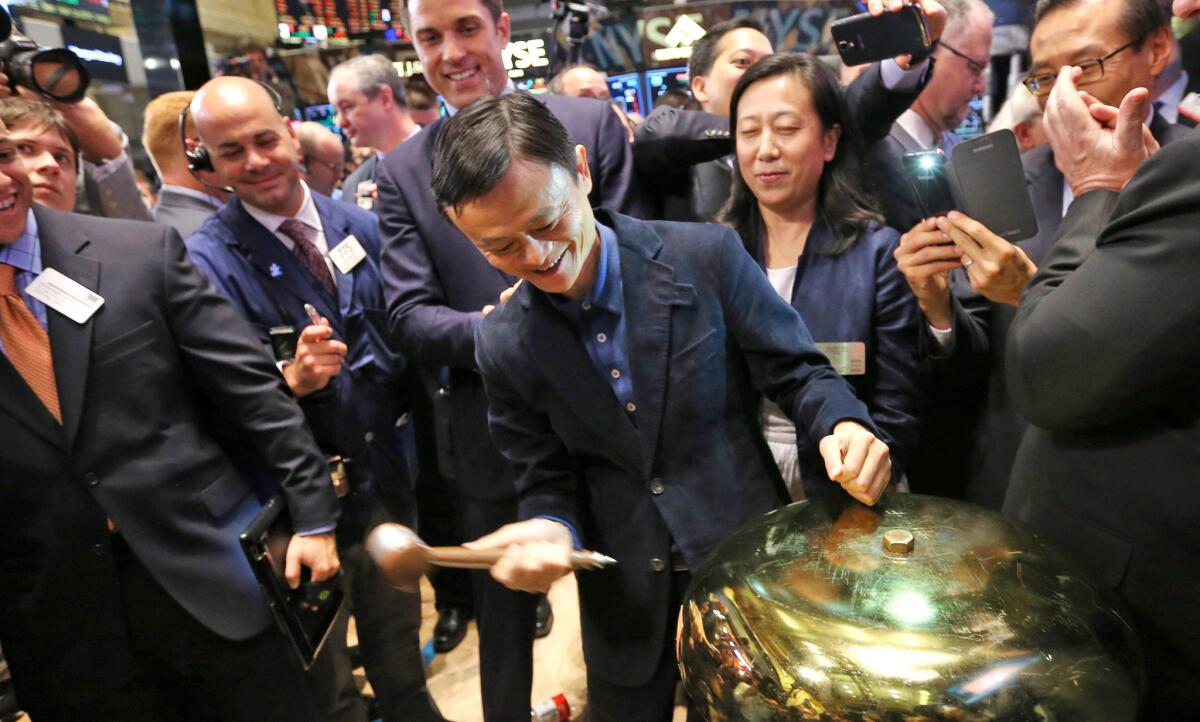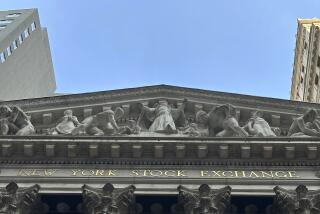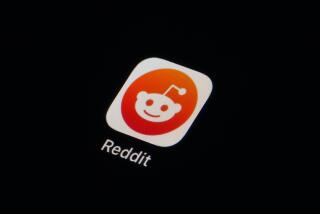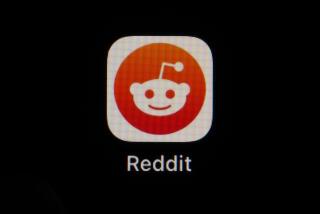Nosedive in number of IPOs this year reflects âcold marketâ — but is it thawing?

Jack Ma, the founder of China-based Alibaba, rings a ceremonial bell on the floor of the New York Stock Exchange during the e-commerce companyâs initial public offering in September 2014. The 68 IPOs in last yearâs third quarter, led by the record $25-billion debut of Alibaba, generated $38 billion in cash for companies. This yearâs third quarter brought in $7.3 billion.
Just two technology stocks went public this summer â not a good sign for the long list of technology start-ups eyeing initial public offerings.
Augustâs stock market slamdown, the deepest drop in nearly four years, sounded like a death knell for the IPO market in 2015.
But a sign of life emerged Wednesday as Pure Storage Inc., a Mountain View, Calif., flash storage company, raised $425 million on the New York Stock Exchange.
Itâs unclear how much cheer that will provide for financial technology company Square and payments processing company First Data, or for non-tech companies such as grocery chain Albertsons and Spanish cable network Univision, which are all preparing to go public before the end of the year.
Those who prefer their glass half-empty can look at recent figures put out by consulting firm PwC: July through September turned into the slowest quarter for tech offerings since the start of 2009.
Those who prefer half-full can draw some optimism from Pure Storageâs market debut.
âMarket weakness so far has been a drag on a majority of new stock issues this year,â Richard Peterson, senior director at S&P Capital IQ said ahead of the Pure Storage debut. âBig gains in the first day ... a lot of market observers will see it as a positive development.â
While Pure Storage pocketed the cash it sought, the big gain for stockholders didnât materialize Wednesday. Shares of Pure Storage fell to $16.01 Wednesday, 6% down from its $17 IPO price.
At the same time, Caribbean wireless carrier Digicel Group scuttled plans to go public, citing âmarket volatilityâ forcing the price of new stocks down. The announcement and Pure Storageâs early results could become fresh evidence for the pessimists.
Just 45 companies joined U.S. stock exchanges from July through September, leaving 2015 with little chance to match last yearâs 14-year high of 304 initial public offerings.
Led by the record $25-billion debut of China-based Alibaba, the 68 IPOs in last yearâs third quarter generated $38 billion in cash for companies. This yearâs third quarter brought in $7.3 billion, or a little more than half of last yearâs sum after excluding Alibaba, the consulting firm PwC reported. Since then, Alibaba shares, briefly over $100, have languished at about $65, below the $68 IPO price.
Worldwide, IPO activity fell 55% compared with the previous quarter and proceeds raised sunk 58% compared with last yearâs third quarter after removing Alibaba, business consultancy EY said.
September is usually flush with IPOs, but the combination of a late Labor Day and a stock market spooked by China sidelined offerings. Chinaâs Shanghai composite index has fallen more than 40% from its mid-June peak, including a big drop in August, when the exchange closed the door to new IPOs.
The U.S. stock market has been anything but steady this year too, with the Greek debt crisis, the fears of slower growth in China and mixed U.S. economic reports halting years of boom. A volatility index that measures short-term fears based on option prices spiked 126% in August to its highest point since 2011.
The IPO slowdown is another expression of the volatility, said Christopher Schwarz, a finance professor at UC Irvine.
âYou want to go public in a market that is bullish on stocks,â he said. âThe number of IPOs doesnât mean much to retail investors directly, but itâs a sign that the market isnât very strong. Itâs a cold market.â
CB Insights, which tracks venture capital investments, had identified nearly 600 technology companies that had at least a slim chance to go public sometime this year. Few have.
The private equity market has taken up much of the slack.
In the first six months of 2015, more than 100 venture-capital-backed companies received at least $100 million through private placements, five times the number that issued IPOs. Corporations, especially in Asia, have been big funders. As have mutual funds and private equity operations starved for even slim growth in a low-yield environment.
The latest: Last week, Japanese conglomerate SoftBank Corp. led a $1-billion investment into U.S.-based online student loan refinancing start-up Social Finance Inc.
âTo be quite frank, thereâs still so much money coming in on the private side that the better question might be whoâs on the path to raise another [private funding] round than whoâs lining up to go public,â said CB Insights analyst Matthew Wong. âThat will continue to be the narrative through the end of the year.â
But he noted that the tech IPO drought will have to end sometime because of the long list of consumer technology companies, such as ride-hailing app Uber, that canât infinitely fund expensive operations through revenue and private investment. If it doesnât end, it could be bad news for the startup economy.
Outside of tech, companies are cutting IPO prices to drum up interest on Wall Street. Last week, biotech company NovoCure sold initial shares for $22, below an initial high-end goal of $26. Trading has pushed shares down to $16. EYâs global vice chair Maria Pinelli said that meant the pendulum was swinging back to investors.
âAs the market settles, we believe this will prove beneficial to the IPO market as investors regain comfort with valuations and lend support to the most promising new issuers,â she said in a recent report.
Automaker Ferrari, fitness studio chain SoulCycle, retailer Neiman Marcus and pet supply store Petco are among others considering an IPO this year that may have to adjust pricing expectations.
Twitter: @peard33
More to Read
Inside the business of entertainment
The Wide Shot brings you news, analysis and insights on everything from streaming wars to production â and what it all means for the future.
You may occasionally receive promotional content from the Los Angeles Times.











